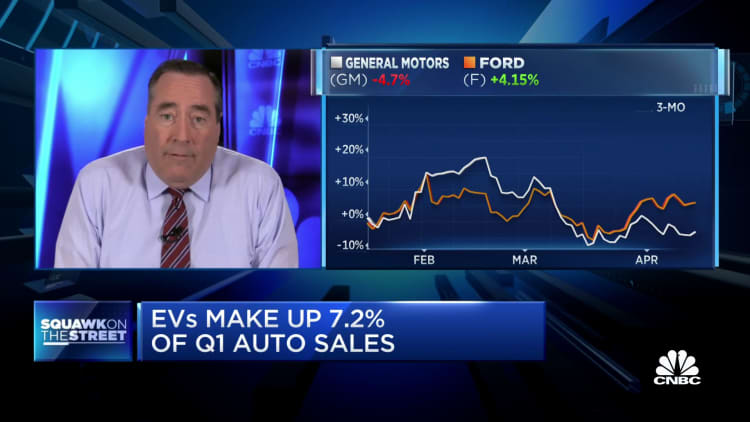Fewer electric vehicles now qualify for federal tax credits after the Biden administration this week unveiled stricter rules for battery sources that will prioritize domestically manufactured models.
The new list published by the Treasury Department includes 16 U.S. manufactured models from Ford, General Motors, Tesla and Stellantis. Ten of the models on the new list will qualify for the full $7,500 tax credit, with the rest qualifying for half that amount. Vehicles losing credits include those from BMW, Hyundai, Nissan, Rivian, Volkswagen and Volvo Cars. Some vehicles from those brands may still qualify for the credits if they are assembled in the U.S. and if certain components are sourced domestically.
The new rules apply to vehicles delivered to consumers starting Tuesday.
Tax incentives for EVs are designed to lower the costs for consumers, who have cited the high prices as a main barrier to going electric. The average new EV in the U.S. costs about $58,600, or almost $10,000 more than the average new vehicle.
The new incentives are part of the Inflation Reduction Act (IRA), the landmark climate law that President Joe Biden signed in August. The bill set various manufacturing requirements for new all-electric and plug-in hybrid vehicles to qualify for the $7,500 tax credit. The law also established limits on sales prices and excluded consumers who earn more than $150,000 a year and couples who earn more than $300,000.
White House officials hope the updated list will incentivize automakers to move their supply chains from China to the U.S. while promoting climate-friendly EVs. China currently makes most EV batteries worldwide.
Under the new rules, electric and plug-in hybrid vehicles can receive the full tax credit only if the vehicles are made in North America and the batteries and critical minerals are from the U.S. or a country with which the U.S. has a free trade agreement.
At least 40% of the critical minerals by value in the vehicle's batteries must have been extracted, processed or recycled in the U.S. or countries with which it has trade deals. That percentage will increase by 10% each year until it reaches 80% after 2026.
Additionally, at least 50% of the value of the components in an EV's battery must be manufactured or assembled in North America. That percentage will increase to 60% in 2024 and 2025 and will increase by 10% each year until it hits 90% in 2028.
The new rules may undercut the Biden administration's proposed tailpipe emissions limits, which could require as many as 67% of all new vehicles sold in the U.S. by 2032 to be all-electric — the country's most ambitious climate regulation yet.
The transportation sector is the largest source of greenhouse gases in the country, according to the Environmental Protection Agency. Despite a rise in EV sales in the U.S. in recent years, they accounted for only 5.8% of all the 13.8 million new vehicles sold last year, according to data from the Kelley Blue Book. The U.S. is the world's third-largest market for EVs behind China and Europe.
— John Rosevear contributed to this report.



